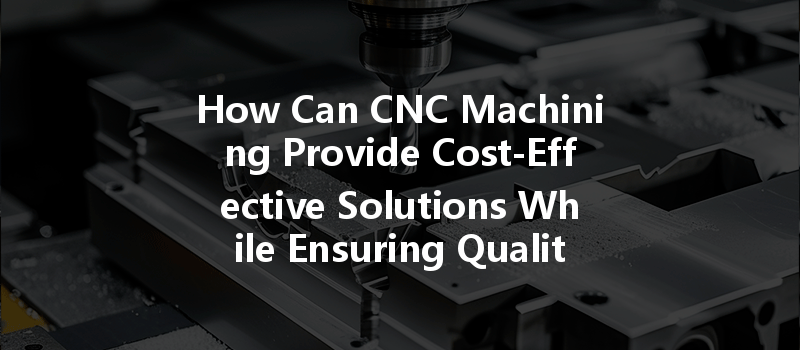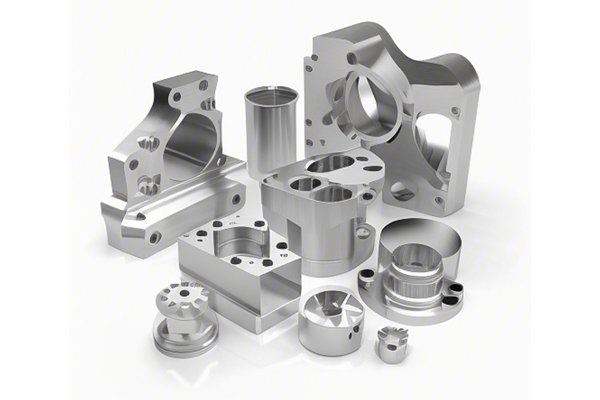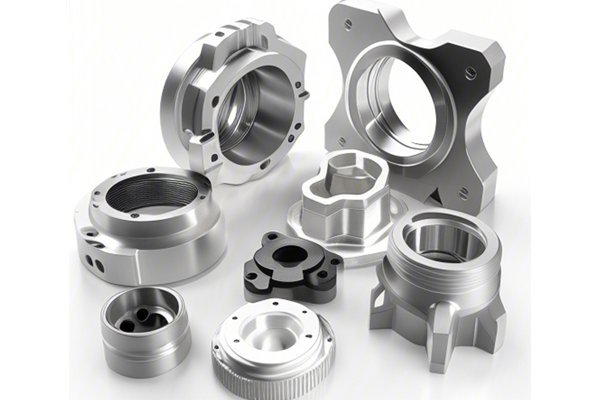Opening: The Power of Precision
Did you know that CNC (Computer Numerical Control) machining has revolutionized the manufacturing industry by increasing production efficiency by up to 50%? In today’s fast-paced market, businesses face a constant challenge: balancing cost-effectiveness with the need for superior quality in their projects. As manufacturers strive to deliver high-quality products while keeping operational costs low, CNC machining stands out as a game-changing solution. This article explores how CNC machining can provide cost-effective solutions while ensuring quality, helping you navigate the complexities of modern manufacturing.
Understanding CNC Machining
CNC machining is an advanced manufacturing process that utilizes pre-programmed computer software to control the movement of machinery and tools. Unlike traditional machining methods that rely heavily on manual operation, CNC machining automates processes by translating designs into precise instructions for the equipment. This innovation not only streamlines production but also enhances accuracy, repeatability, and versatility in machining a variety of materials.
By incorporating CNC machining into your manufacturing process, you can achieve precise cuts, complex shapes, and tight tolerances that are often difficult or impossible to obtain through manual methods. The technology is widely used in various industries, including aerospace, automotive, medical devices, and consumer products.
The Cost-Effectiveness of CNC Machining
One of the significant advantages of CNC machining is the reduction in labor costs. With traditional machining, skilled machinists are required to manually operate equipment, which increases labor expenses. CNC machines, however, require fewer operators and can run continuously, which minimizes labor costs while maximizing production efficiency.
CNC machining also helps in minimizing material waste. With precise cutting and programming, manufacturers can maximize the utilization of raw materials. This not only lowers material costs but also reduces environmental impact—a pressing concern in today’s eco-conscious market.
CNC machining significantly decreases the time it takes to produce parts. Once the design is programmed into the CNC machine, it can replicate the design with high precision, producing parts in a fraction of the time it would take using manual methods. As a result, products can reach the market faster, enhancing competitiveness.
CNC machining is highly scalable, making it suitable for both small and large-scale production runs. By adjusting the programming parameters, manufacturers can produce different quantities of parts without the need for extensive reconfiguration. This flexibility allows businesses to adapt quickly to changing market demands without incurring substantial costs.
Perhaps the most significant factor in cost-effectiveness is the ability of CNC machining to deliver consistent quality. Automated processes significantly minimize human error, leading to products that meet rigorous quality standards. This consistency reduces the likelihood of defects and the costs associated with rework or scrap.
Ensuring Quality in CNC Machining
While CNC machining provides cost-effective solutions, ensuring quality remains a top priority. Here are several ways to maintain high-quality standards in CNC machining:
To achieve high-quality outputs, investing in advanced CNC machines is essential. Look for machines equipped with state-of-the-art technology, such as multi-axis capabilities and high-speed spindles, which can enhance precision and streamline production.
Even though CNC machines automate processes, skilled operators are crucial for overseeing operations. Qualified machinists can program machines, troubleshoot issues, and make adjustments that ultimately affect the quality of the final product. Ongoing training for operators is vital to keep their skills sharp and familiarize them with the latest technologies.

Implement robust quality control measures throughout the production process. Regular inspections of both raw materials and finished parts can identify defects early on. Utilizing tools such as coordinate measuring machines (CMM) or other inspection technology helps ensure that parts meet the specified tolerances and dimensions.
Careful selection of materials is critical to achieving the desired quality. Materials should be tested for their machinability, strength, and durability to ensure they are suitable for the intended application. CNC machining can also accommodate a variety of materials—from metals to plastics—requiring careful consideration of the specific machining processes used for each material type.
Continuously evaluate and optimize machining processes to enhance quality. This can include utilizing cutting-edge simulation software to predict machining outcomes, adjusting feed rates, and refining tool paths. Continuous monitoring and analysis of machining parameters ensure that quality remains uncompromised throughout production.
Advantages of CNC Machining Beyond Cost-Effectiveness
Beyond the aforementioned cost-effectiveness and quality assurance benefits, CNC machining offers several additional advantages that can significantly impact your projects:
CNC machining allows for the creation of complex designs that traditional methods may not handle effectively. With the ability to program intricate shapes and features, manufacturers can produce parts that are specific to their customers’ unique needs.
The adaptability of CNC machining supports flexible manufacturing practices, allowing for adjustments in design, production volume, and material choice. This flexibility is particularly advantageous in environments with fluctuating production demands.
CNC machines are equipped with safety features that protect operators from accidents. Automated processes reduce the risk of injuries associated with manual machining, creating a safer work environment.
The Future of CNC Machining
As technology advances, the future of CNC machining appears promising. The integration of artificial intelligence (AI), machine learning, and the Internet of Things (IoT) will further enhance the capabilities of CNC machines, enabling smarter and more efficient production processes.
The development of user-friendly programming software will also simplify the transition for manufacturers looking to adopt CNC machining technology. Additionally, advancements in materials and cutting tools will improve the efficiency and environmental sustainability of CNC machining.
: Why CNC Machining Matters
In summary, CNC machining is a transformative technology that offers a wealth of benefits in terms of cost-effectiveness and quality assurance. It enables manufacturers to reduce labor costs, minimize material waste, achieve faster production times, and maintain consistency in quality—all crucial elements in today’s competitive landscape.
As industries continue to evolve, embracing CNC machining is not only a strategic move but a necessary one to keep pace with changing market demands. The importance of quality, cost efficiency, and innovation in manufacturing cannot be overstated. By leveraging CNC machining technology, businesses can elevate their production capabilities, meet customer expectations, and ultimately thrive in the ever-changing world of manufacturing.
This blog highlights the critical role of CNC machining in modern manufacturing and its implications for the future. With a deeper understanding of its advantages and applications, manufacturers can make informed decisions that drive their success while focusing on delivering quality products to their customers.
Related Posts
- What are the benefits of optimizing energy management in aluminum CNC machining for sustainability and cost reduction?
- How Does CNC Machining Support Export Packaging and Shipping Services for Custom Parts?
- What Factors Should Be Considered When Evaluating the Machinability of Engineering Polymers in CNC Applications?






